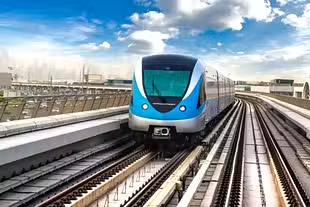The Andhra Pradesh Metro Rail Corporation Limited (APMCL) is set to revise the Comprehensive Mobility Plan (CMP) for Visakhapatnam, responding to a directive from the Union government. This update is vital for the proposed metro rail project, as the original CMP, developed in 2018, is nearing the end of its five-year validity. Significant changes in traffic patterns, mobility needs, and infrastructural demands necessitate a comprehensive reassessment, not just for the metro rail, but also for the city’s broader public transportation framework, including bus routes and feeder services.
One of the ambitious goals of the updated CMP is to elevate the public transport usage from the current 40% to between 50% and 55%. Achieving this requires addressing critical gaps in the road network to ensure a balanced distribution of traffic across major routes. Key areas identified for improvement include the Simhachalam Bus Rapid Transit System (BRTS) corridor linked to NH-16, and several other routes throughout the city. Traffic studies have revealed that the NAD junction experiences the highest daily flow, accounting for an astounding 3.57 lakh passenger car units, particularly during peak hours when congestion can rise to 10% of total traffic. For instance, Birla Junction records peak traffic between 5 PM and 6 PM, representing 10.1% of the daily total, while YSR Stadium sees similar spikes from 6 PM to 7 PM, contributing 9.6%.
As the APMCL prepares to roll out the updated CMP, there is a palpable sense of hope among residents. “Public transport is essential for our city’s growth, and I believe the metro will make commuting much easier,” shared a local business owner. However, there is also a level of scepticism. Many citizens express concerns over whether these changes will be sufficient to alleviate their daily commute struggles. “We’ve waited a long time for improvements, and I just hope this isn’t another unfulfilled promise,” stated a commuter, echoing the sentiments of many who rely on public transport. From a sustainability perspective, enhancing public transport is crucial for reducing the city’s carbon footprint. Increasing public transport share not only diminishes reliance on personal vehicles, thereby decreasing emissions, but also promotes a healthier urban environment. A higher percentage of public transport usage can lead to less congestion, lower air pollution levels, and improved quality of life for residents. As the city prepares for these crucial updates, it is essential for authorities to engage with the community, addressing concerns and ensuring that the improvements genuinely reflect the needs of the citizens. With a clear focus on sustainability and responsiveness to public feedback, the Visakhapatnam metro project could become a cornerstone for a more efficient and eco-friendly urban transport system.


